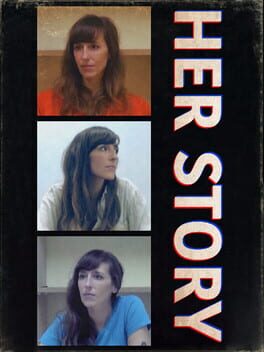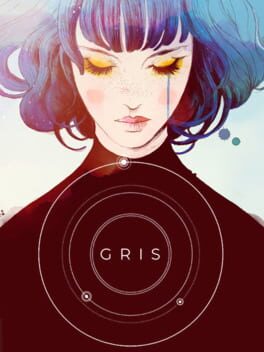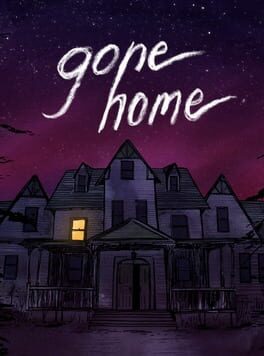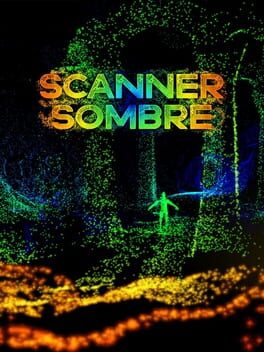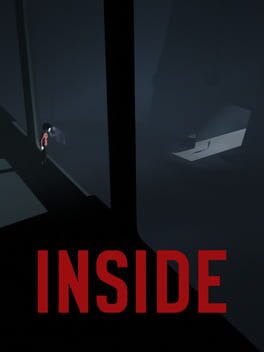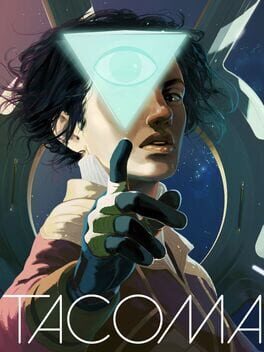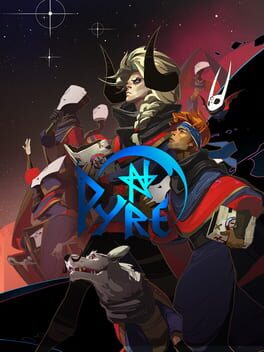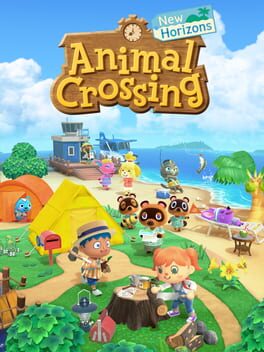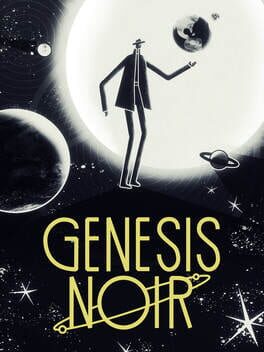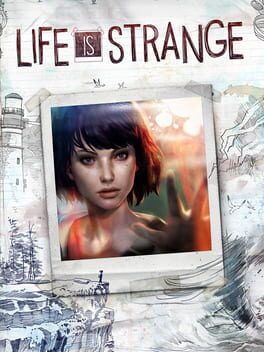hawkjones
2015
This review contains spoilers
A research simulator. On one hand, this is interesting because progression in the game is dictated by your (the player's) knowledge about the game rather than by items or abilities. On the other hand, the game throws in arbitrary roadblocks to slow and direct your progress, including limiting your search results to 5 videos, until you "complete" the game, and then limiting it to 15. This is a bummer because the same effect could have been achieved with more skillful writing. Also, the fact that you can't reorder videos on your personal timeline is extremely questionable. That said, this is one of the only games I know of that takes this approach to progression, and raises all sorts of questions about identity, relationships, mediation and trust. Well worth playing.
2018
2013
This review contains spoilers
There seems to be a sorta-trend amongst short indie games where they introduce this potentially interesting world and then wrap it up way too quickly. Gone Home introduces a few interesting ideas, layers a formulaic love story on top of it, and then bolts out of the room as soon as it’s credits time. Wish there was more.
2017
2016
INSIDE asks questions about control. Why you are playing the game? Are you really playing the game? Are you really are playing the game? What is the game? Who else is playing the game? Are those people actually playing the game? A diagram of the thematic currents quickly starts to resemble a Mandelbrot set.
Superficially, this is a short, atmospheric 2.5D platformer. But the themes of the game are recursive, and build on one another until they collapse in on themselves, quite literally, in the climax. An experience that held a mirror up to the past 25 or so years that I've spent playing video games. It was uncomfortable and unforgettable.
Superficially, this is a short, atmospheric 2.5D platformer. But the themes of the game are recursive, and build on one another until they collapse in on themselves, quite literally, in the climax. An experience that held a mirror up to the past 25 or so years that I've spent playing video games. It was uncomfortable and unforgettable.
2017
2017
I wish I could like this game more. The character and level design, the music, the sound, the setting, and the concept are all some of the best I've ever seen in a video game. I'd even say that the writing is some of the best in any Supergiant game.
But... something went wrong. I'll echo other reviewers by saying that I just stopped caring about the whole thing after about 3-5 hours. I'm not positive as to why, but I have some theories:
1) The cyclical nature of the gameplay makes logical sense in the game setting and for mechanics. Obviously Supergiant can pull off a repetitive game (see: Hades), but there may not have been quite enough variation between levels in Pyre to keep it exciting. I hit on a few general strategies with each character and stuck with them and that was it. The talismans and lineup changes didn't do much to alter my strategies.
2) I mentioned that the writing was the best for a Supergiant game, but the bar is pretty low in that regard. Every sentence sounds like it's occurring in the middle of a paragraph, or that you're missing context to understand it.
3) Character development proceeds along lines that you can see as soon as you meet each character. They change, sure, but this is a caravan of tropes and never get subverted, commented on, flipped, or anything other than what you'd come to expect.
It's a shame because Pyre is truly stunning and I still listen to the soundtrack while writing. It just felt like a chore to play for three quarters of my time with it.
But... something went wrong. I'll echo other reviewers by saying that I just stopped caring about the whole thing after about 3-5 hours. I'm not positive as to why, but I have some theories:
1) The cyclical nature of the gameplay makes logical sense in the game setting and for mechanics. Obviously Supergiant can pull off a repetitive game (see: Hades), but there may not have been quite enough variation between levels in Pyre to keep it exciting. I hit on a few general strategies with each character and stuck with them and that was it. The talismans and lineup changes didn't do much to alter my strategies.
2) I mentioned that the writing was the best for a Supergiant game, but the bar is pretty low in that regard. Every sentence sounds like it's occurring in the middle of a paragraph, or that you're missing context to understand it.
3) Character development proceeds along lines that you can see as soon as you meet each character. They change, sure, but this is a caravan of tropes and never get subverted, commented on, flipped, or anything other than what you'd come to expect.
It's a shame because Pyre is truly stunning and I still listen to the soundtrack while writing. It just felt like a chore to play for three quarters of my time with it.
2019
It's tempting to make a short game that hints at something bigger – paranormal phenomena, a malevolent corporation, some sort of destiny or legend – but it's unexpectedly difficult to reveal enough of the mystery while keeping it... a mystery. One way of solving this problem is to never introduce it in the first place, which is exactly what A Short Hike does. Solid mechanics, relentlessly charming. Not a ton of substance, but there doesn't have to be! It's like two hours long. Enjoy yourself.
2012
Breath of the Wild excels at nothing. More specifically, it excels at creating empty, peaceful moments with no combat, no countdown timer, no stress. Just running through a grassy field with the breeze rustling your hair, watching the sun set, listening to the birds and insects around you. White space. [This is possibly borne out of the “aspect to aspect” tendency in Japanese storytelling– for more, see Understanding Comics by Scott McCloud or Nerdwriter1’s video on Ghost in the Shell on YouTube] How does this differ from many other open world games with rich environments, such as Skyrim, RDR2, or The Witcher 3? I believe it has to do with the fact that, in most cases, you can actually insert yourself (or at least Link) into whatever vista you can see. This has implications beyond, as others have suggested, existing as a mechanical novelty.
The world doesn’t push back against your attempts to navigate it– in other games, this pushback may manifest as having to repeatedly bunny hop to scale a mountain, or your character not grabbing on to a ledge that appears to be graspable if it existed in real life. Instead, BotW has refined and intuitive navigation mechanics, making movement feel more similar to a game like THPS than Ocarina of Time. Paragliding to the back of your horse, then dismounting your horse to slide on your shield down a hill, then jumping off your shield to scale a cliff can all be strung together in an essentially unbroken chain. In short, the “physical” world of Hyrule is welcoming in a manner that is central to the video gaming experience itself, which is moving through space.
There’s one other thing that BotW excels at, which is presenting the player with an environment within which they can explore a series of (mostly) compatible systems. It does this extremely well with the exception of multi-enemy combat, where it could’ve benefitted from some improvements to the camera and targeting mechanics. Other people have discussed this at length so I’ll end my comments on the matter there.
Unfortunately, it was clear pretty early on that the story in BotW was going to be Extremely Nothing– no character development, no challenging questions, no provocations. I tried really hard to come up with a generous reading, and the best I could do is that it’s a parable about the dangers of weaponizing artificial intelligence? I guess? But even that is a secondary, almost incidental aspect of the main storyline so I’m not assigning it that much significance. The heart of the story is really about good versus evil full stop. This is a small tragedy, because given how beautifully the game deals with movement and environment, Hyrule as a place in time could have been more thematically significant, such as the Forbidden Land in Shadow of the Colossus. As it is, BotW is a product of what Nintendo does best, which is making toys.
The world doesn’t push back against your attempts to navigate it– in other games, this pushback may manifest as having to repeatedly bunny hop to scale a mountain, or your character not grabbing on to a ledge that appears to be graspable if it existed in real life. Instead, BotW has refined and intuitive navigation mechanics, making movement feel more similar to a game like THPS than Ocarina of Time. Paragliding to the back of your horse, then dismounting your horse to slide on your shield down a hill, then jumping off your shield to scale a cliff can all be strung together in an essentially unbroken chain. In short, the “physical” world of Hyrule is welcoming in a manner that is central to the video gaming experience itself, which is moving through space.
There’s one other thing that BotW excels at, which is presenting the player with an environment within which they can explore a series of (mostly) compatible systems. It does this extremely well with the exception of multi-enemy combat, where it could’ve benefitted from some improvements to the camera and targeting mechanics. Other people have discussed this at length so I’ll end my comments on the matter there.
Unfortunately, it was clear pretty early on that the story in BotW was going to be Extremely Nothing– no character development, no challenging questions, no provocations. I tried really hard to come up with a generous reading, and the best I could do is that it’s a parable about the dangers of weaponizing artificial intelligence? I guess? But even that is a secondary, almost incidental aspect of the main storyline so I’m not assigning it that much significance. The heart of the story is really about good versus evil full stop. This is a small tragedy, because given how beautifully the game deals with movement and environment, Hyrule as a place in time could have been more thematically significant, such as the Forbidden Land in Shadow of the Colossus. As it is, BotW is a product of what Nintendo does best, which is making toys.
2019
My god, what a rich field of inquiry utterly squandered by a man with a teenager's brain. Indulgence masquerading as insight. This is a child taking the most exquisite stones and flowers and bird nests from a forest, then covering them with paint and glue for their "project".
And to really drive home the fact that Kojima is sticking his entire schlong into your face, there are two (2 [TWO!!!]) unskippable credits sequences.
And to really drive home the fact that Kojima is sticking his entire schlong into your face, there are two (2 [TWO!!!]) unskippable credits sequences.
2016
2021
Extremely stylish and some interesting ideas re: science and noir. Unfortunately the ending was Kojima-level indulgent and completely failed to tie any of it together. Controls were often clunky-- I feel like this is best played with a controller. A real shame because this could have been incredible but it needed an editor and possibly more funding. But ain't that how it goes.
2015
Played for about an hour or so. Someone with a higher tolerance for teen soap opera writing could probably push through the more hackneyed dialogue and find some worthwhile nuggets, but I just can't. The time rewinding mechanic was a great idea that was well-executed and deserved the praise it got for evolving storytelling in gaming.
